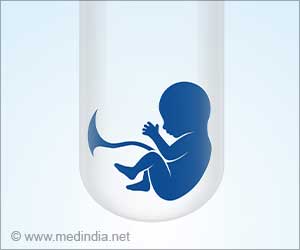FAQs About In Vitro Fertilization (IVF)
1. Which doctor should I consult for IVF?You should consult a reproductive endocrinologist or a fertility specialist to discuss IVF treatment.
2. Are IVF babies born normal?
Yes, IVF babies are born just as normal as babies conceived naturally. IVF is a medical procedure that helps with conception but does not inherently affect the baby's health or development.
3. What is the difference between a normal baby and an IVF baby?
There is no inherent difference between a baby conceived through IVF and one conceived naturally. Both types of babies develop normally and share the same physical and genetic characteristics as their parents.
4. Are IVF babies disadvantaged?
No, IVF babies are not disadvantaged. They generally experience the same range of health outcomes as babies conceived without IVF. Any risks associated with IVF are related to the procedure itself, not the baby's development.
5. Do IVF babies look like their parents?
Yes, IVF babies can look like their parents just like babies conceived naturally. Genetic traits are passed from parents to their children regardless of the conception method.
6. Who needs IVF?
IVF (in vitro fertilization) is typically recommended for individuals or couples who have difficulty conceiving naturally. Common reasons include infertility, unexplained infertility, age, genetic disorders, same-sex couples or single parent.
7. Whose sperm is used in IVF?
In IVF, sperm can be taken frompartner or from donor.
8. How many cycles of IVF will I need?
The number of IVF cycles needed varies greatly among individuals. Some may achieve pregnancy after the first cycle, while others may require multiple cycles. On average, about 3-6 cycles are common, but this depends on factors such as age, health, and specific fertility issues.
9. Is IVF painful?
IVF involves various procedures that might cause some discomfort, but it is generally not extremely painful. Common procedures include hormone injections, egg retrieval (which may involve mild sedation), and embryo transfer (which is usually not painful).
10. How long does the IVF process take?
The IVF process typically spans several weeks to a few months. The initial phase involves ovarian stimulation and monitoring (2-4 weeks). Egg retrieval is performed, followed by fertilization and embryo culture (5-6 days). Finally, an embryo transfer occurs, and a pregnancy test is done about two weeks later.
11. Is it safe to have an IVF baby?
Yes, having an IVF baby is generally safe. IVF is a well-established and widely used fertility treatment with a high success rate. However, like all medical procedures, it carries some risks, which are typically managed by experienced fertility specialists.
12. Do IVF kids look different?
No, IVF babies do not look different from those conceived naturally. Appearance is determined by genetics, not the method of conception.
13. Are most IVF babies girls?
The sex ratio of IVF babies is approximately the same as in the general population, with a roughly equal number of boys and girls born.
14. Are IVF babies big or small?
The size of IVF babies is similar to that of naturally conceived babies. Any variations in size are generally due to factors such as genetics and maternal health, rather than the IVF process itself.
15. Does IVF increase the risk of birth defects?
IVF does not significantly increase the risk of birth defects compared to natural conception. However, some studies suggest a slight increase in risk, which could be related to underlying fertility issues or the IVF process itself. It's important to consult with a fertility specialist to understand individual risks and ensure proper prenatal care.















